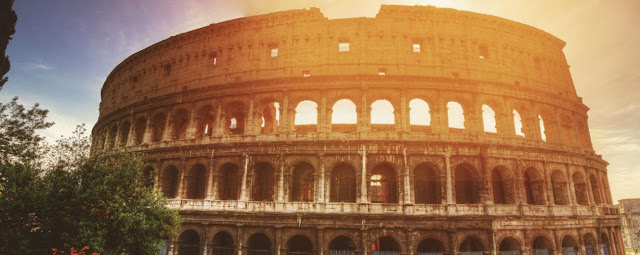The institution of the tribunate as a measure of defence by the plebeians, the raising of the numbers from five to ten and the chief powers of the office have already been described. By the time that the struggle between the orders was over the tribunes had been for so long part of Roman public life that there was no attempt to abolish them and they continued to exist throughout the republic and well into the empire. Strictly, they remained magistrates not of the whole populus, but of the plebs only; they continued to be elected in the concilium plebis; they must be plebeians, and they bore no outward sign of rank whatever; in effect however they ranked as magistrates and the office was one regularly held by plebeians in the cursus honorum or magisterial career. They also obtained the right not only of sitting in but also of convening the senate.
The three powers which gave to the tribunate its greatest political importance were the intercessio by which they continued to be able to bring the whole business of the state to a standstill, their legislative power as presidents of the concilium plebis and their general power of coercitio which continued to be used chiefly for dealing with political offences, and especially for the prosecution of magistrates after the expiration of their term of office. Where the punishment which the tribunes desired to inflict was so severe as to be beyond the jurisdiction of the concilium plebis, the consul was bound to summon the centuries for the tribune, so as to enable him to defend the sentence before them.
Although it had become an integral part of the Roman constitution, the tribunate retained its anarchical possibilities, and it was constantly used as an instrument of party strife, now by one side and now by the other. Frequently its great negative powers made it an instrument by which the senatorial party kept control over magistrates who might wish to use their theoretically enormous powers without sufficient respect for the senate's wishes, but the tribunate was also the office chosen by reformers, such as the Gracchi, and demagogues, such as Saturninus, and its powers remained a danger to senatorial supremacy. For this reason they were drastically curtailed by Sulla when he re-established the constitution on an aristocratic basis, but the original position was shortly afterwards restored, and the tribunate remained important down to the end of the republic. Its powers and also the sacrosanctitas, or inviolability, which still attached to it, made it one of the two chief bases on which Augustus constructed the legal justification of his autocracy.
----------
- The republican constitution
+ The republican constitution: Elements
+ The struggle between the orders
+ The assemblies of the people
+ Characteristics and procedure of roman assemblies
+ The Senate
+ The consulate
+ The praetorship
+ The aedileship
+ The quaestorship
+ The censorship
+ The dictatorship
+ The minor magistrates
----------
Source:
Historical introduction to the study of Roman law, H. F. Jolowicz, pages 52 - 53.
